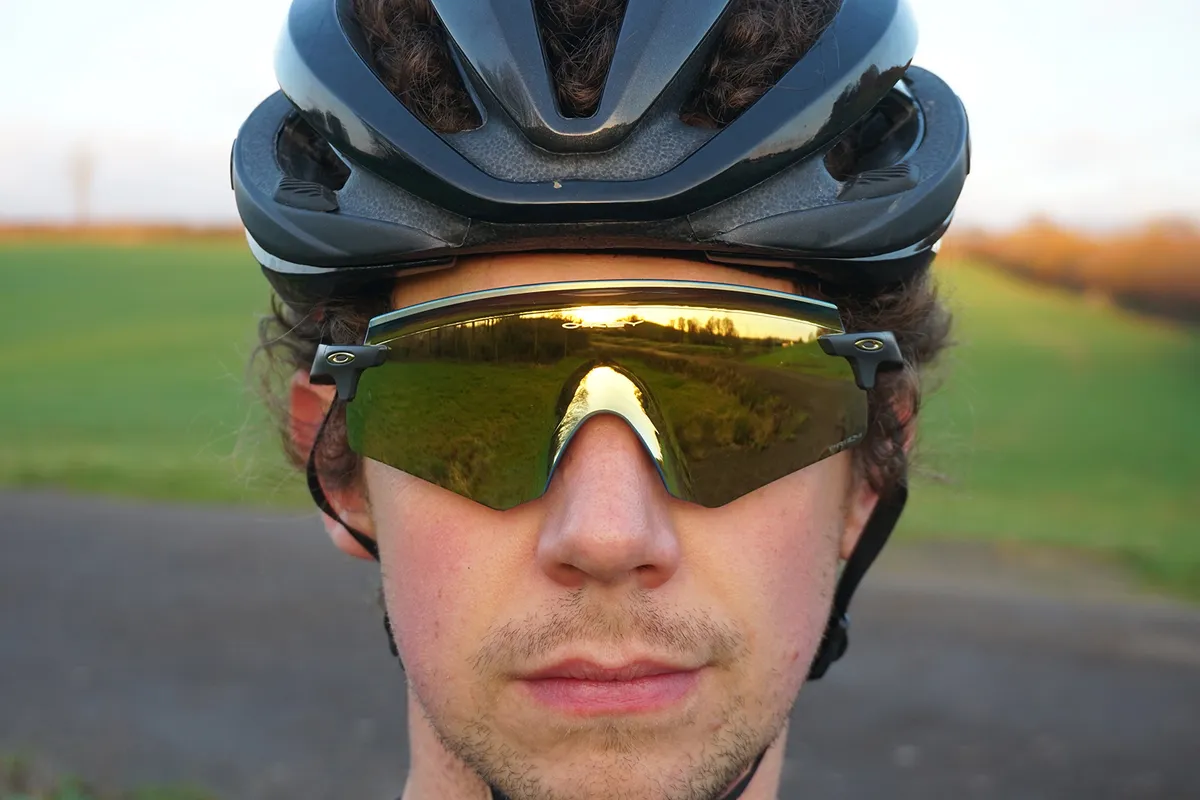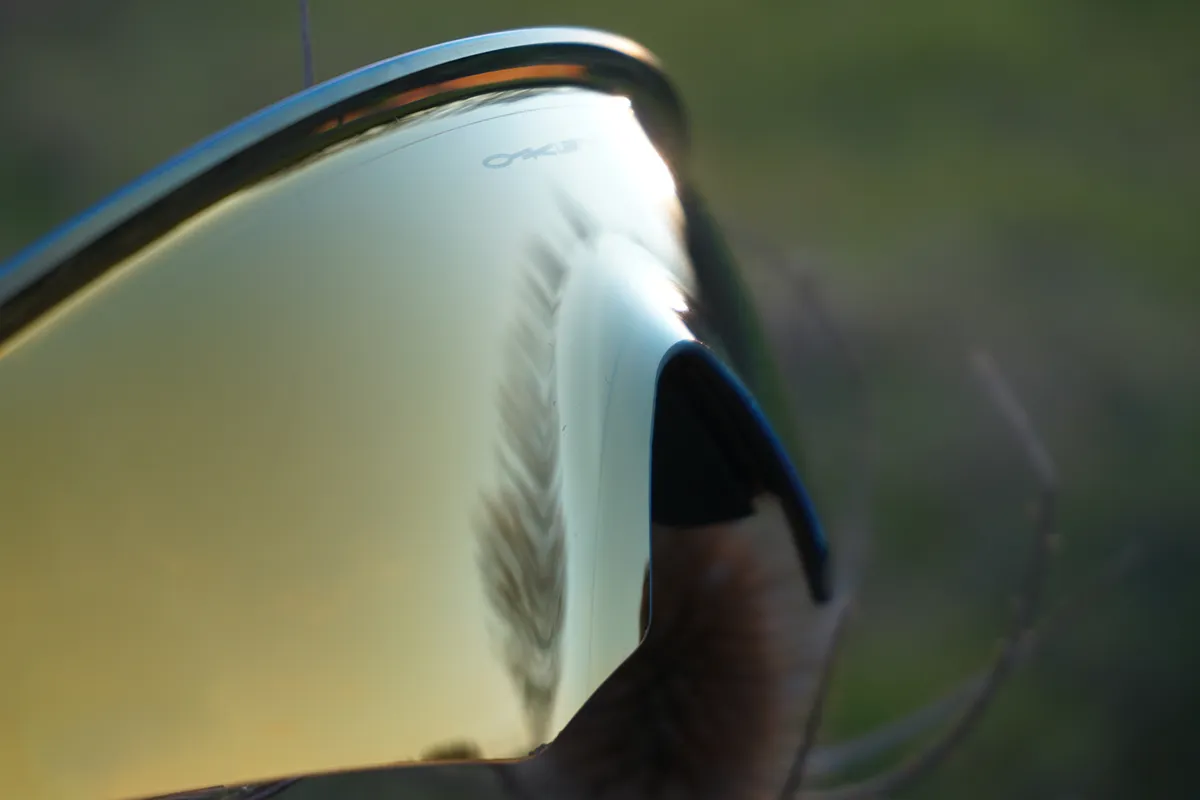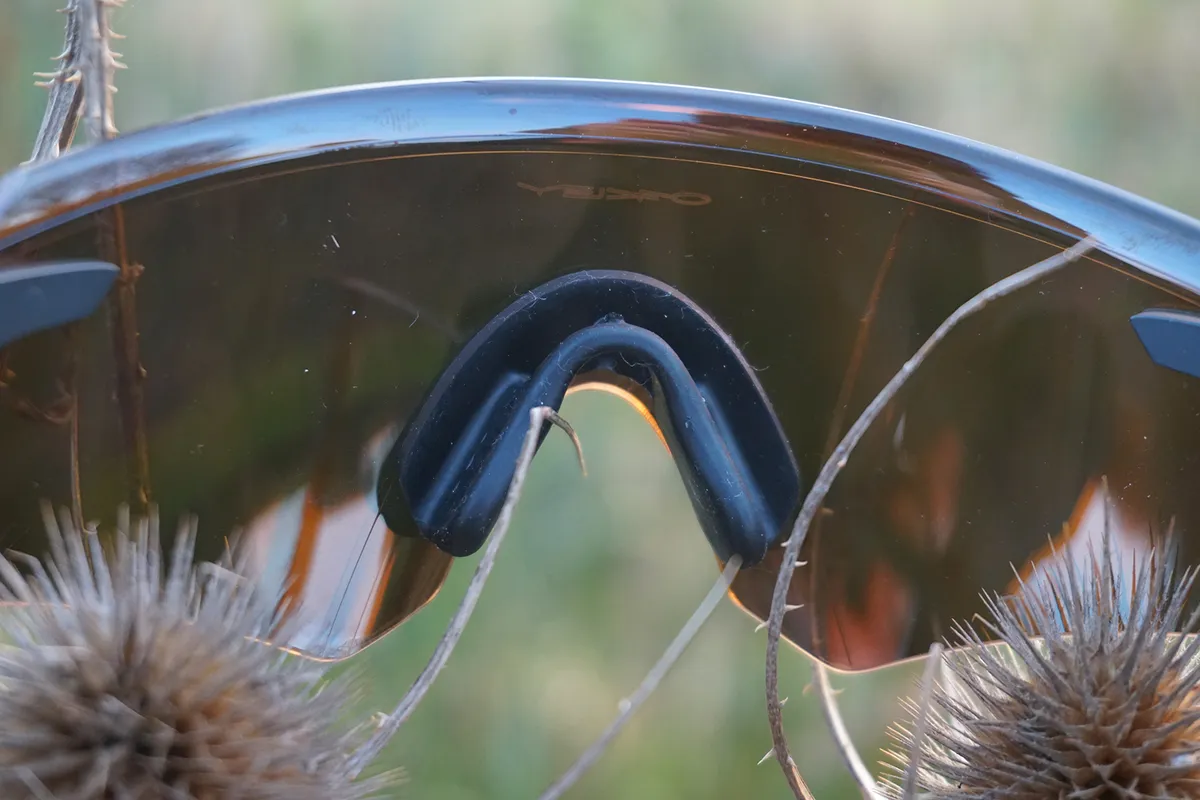The Oakley Encoder sunglasses were released hot on the heels of the brand’s futuristic and headline-grabbing Katos back in May, and as such have flown somewhat under the radar in the cycling sunglasses market.
The Encoders have been marketed by Oakley as more of a multi-sport product, but nonetheless are said to have been designed with features such as helmet compatibility and low-profile ‘O-Matter’ temples in mind.
Indeed, I found the sunglasses to pair nicely with several popular helmets – the lens didn’t unduly contact the helmet brim nor the arms interfere with the helmet retention systems.
What’s more, the Encoders’ decent lens coverage, light 32g weight and Prizm lens coating appear to make the sunglasses just as ideally suited for use on the bike as the Katos.
The Encoders' price is a tad high compared to competing designs such as 100%’s S2, Rudy Project’s Spinshield and Koo’s Orion sunglasses, and their design does have some quirks, but there is still plenty to like about them.
Cut from the same cloth
The fact both the Katos and the Encoders share the same DNA is clear, they are visually very similar.
I would even suggest that at face value, the Encoders would seem to be the more natural choice as a cycling-specific option, given the larger lens (the shape of which harks back to Oakley’s iconic M Frame design) and more conventional shaping that forgoes the Katos’ wrap-over nose portion. Road cycling is nothing if not traditional, after all.
While the frameless design doesn't look as complex as Oakley’s Jawbreakers, the Californian brand has incorporated several smart features into the Encoders that help mitigate the usual drawbacks of frameless sunglasses.

The main issue is with flexibility. Lacking the rigidity of an enclosed lens, frameless sunglasses can typically bend substantially under pressure, making them feel somewhat flimsy and undermining their security on the rider’s face while cycling.
In the Encoders, Oakley has used what it calls ‘calibrated rigidity’ to stiffen the lens.
That means the lens has been bulked up and bent outwards along the top edge and flared around the nose piece (although it has been truncated where the Kato lens wraps fully over the nose).

The result of Oakley’s lens modifications is really successful. In use, the Encoders possess a similarly rigid feel and hold as framed sunglasses, while maintaining the unrestricted field of view frameless sunglasses allow.
Almost something great
For the most part, the Encoders’ Prizm lens offers the same market-leading optical clarity Oakley is known for. The Prizm 24K coating proved excellent at boosting the contrast of road details and reducing the glare of harsh summer sunlight.
However, the warped shape around the nose does create some issues that I don’t think have been solved in the most effective fashion.

Oakley has simply blocked off the curved portion of the lens around the nose with an extension of the rubber nosepad, which I found encroached into the centre of my field of vision. It was subtle enough to float in and out of my attention on a ride, but when noticed did prove a little distracting.
The rubber barrier doesn’t extend all the way down to the bottom edge of the lens either, so some optical distortion is occasionally visible when looking down, for example when glancing at a bike computer.
Considering competing designs such as the S2, Spinshield and Orion, the Encoders don’t compare favourably on retail price and aren’t the perfect set of sunglasses functionally, although deals can be found on them that make them more competitive.

Foibles aside, the Oakley Encoder sunglasses boast some genuine innovation. They should be considered strong contenders if you are in the market for a new set of premium sunglasses that are both distinctive and exclusive.
Despite their comparatively high retail price, a slight design revision in a second generation of the glasses would be all that’s required to make them outstanding, and they are pretty darn good as they are.
Product
| Brand | Oakley |
| Price | A$266.00, €172.00, £204.00, $248.00 |
| Weight | 32g |
Features
| Features | Lens coating: Prizm |

